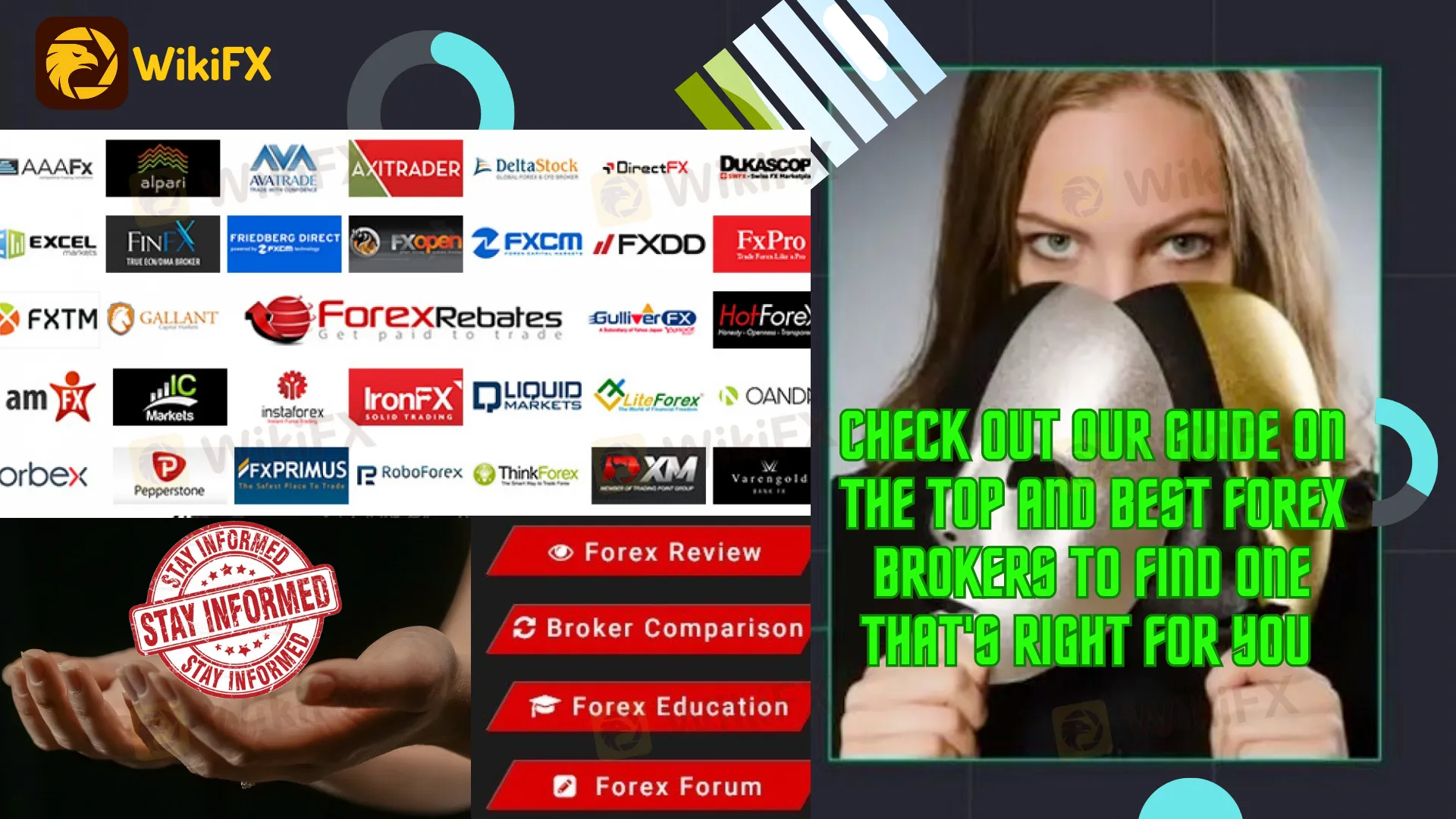简体中文
繁體中文
English
Pусский
日本語
ภาษาไทย
Tiếng Việt
Bahasa Indonesia
Español
हिन्दी
Filippiiniläinen
Français
Deutsch
Português
Türkçe
한국어
العربية
Daily Market Diary-⚠️ HOW TO AVOID FOREX SCAMS ????
Abstract:Powered by WikiFX
Forex trading is an appealing investment opportunity that has drawn the attention of millions of traders around the world. It has become one of the most popular investment vehicles available due to its potential for high returns and ability to trade 24 hours a day. However, as forex trading grows in popularity, so does the risk of scams and fraud. In this article, we will look at how to spot and expose a forex scam broker.

What exactly is a Forex Scam Broker?
A forex scam broker is a business that poses as a legitimate forex broker but engages in fraudulent activities in order to deceive and defraud its clients. Manipulation of trade executions, misrepresenting investment returns, charging hidden fees, or failing to process withdrawal requests are examples of fraudulent activities.
How Can You Spot a Forex Scam Broker?
Check for Regulatory Compliance: The first step in identifying a forex scam broker is to see if the broker is regulated by a reputable regulatory authority. A legitimate forex broker should be registered with regulatory bodies such as the Financial Conduct Authority (FCA) in the United Kingdom, the Australian Securities and Investments Commission (ASIC), or the Securities and Exchange Commission (SEC) in the United States.
Unsolicited Offers: Unsolicited offers from forex brokers are almost always a scam. As a marketing strategy, legitimate forex brokers do not use cold calling or email spamming.
High Returns: A forex broker who promises high returns with little risk is almost certainly a scam. There is no legitimate forex broker who can promise high returns or risk-free trading.
Hidden Fees: A forex broker who charges hidden fees such as deposit or withdrawal fees, inactivity fees, or commission fees is almost certainly a scam. A legitimate forex broker should disclose their fees.
Poor Customer Service: If a forex broker provides poor customer service, this is a red flag. A legitimate forex broker should have a responsive customer support team that can answer your questions and resolve any issues you may be experiencing.
How Can You Spot a Forex Scam Broker?
Complain: If you believe you have been duped by a forex broker, you can file a complaint with the regulatory authority with which the broker is registered. If necessary, the regulatory authority will investigate your complaint and take appropriate action against the broker.
You can also share your experience with other traders by posting reviews on forex forums or social media platforms. This can assist other traders in avoiding the same scam.
Report to Authorities: You can also notify authorities such as the police, the Federal Bureau of Investigation (FBI), or the Internet Crime Complaint Center about the forex scam broker. (IC3). This can help bring the scammer to justice and keep them from victimizing others in the future.
Conclusion
Forex trading can be a lucrative investment opportunity, but it is critical to be vigilant and cautious in order to avoid becoming a victim of forex scams. You can identify a forex scam broker and take appropriate steps to expose them by following the guidelines outlined above. Remember that if something appears to be too good to be true, it most likely is. Always conduct your due diligence and never invest more than you can afford to lose.
Disclaimer:
The views in this article only represent the author's personal views, and do not constitute investment advice on this platform. This platform does not guarantee the accuracy, completeness and timeliness of the information in the article, and will not be liable for any loss caused by the use of or reliance on the information in the article.
Read more

Axi Reveals Game-Changing Edge Score Tool to Elevate Traders
Axi launches the Edge Score Explainer, a tool providing traders with real-time insights, personalized metrics, and actionable data to enhance trading performance.

High Risk, High Returns: Is This True?
Leverage is one of the most talked-about tools in trading. It promises big returns but comes with huge risks. Traders often wonder if leverage is a blessing or a curse. There are arguments on both sides. Some traders believe it is a game-changer. Others think it can ruin your account. What is your take on this?

FCA Plans to Transform Financial Regulations in the UK
The Financial Conduct Authority (FCA) has revealed plans to reform its regulatory framework to support economic growth in the United Kingdom.

Is eToro Leaving London to Focus on a $5B U.S. IPO in 2025?
eToro plans a $5B U.S. IPO in 2025, shifting focus from London to the U.S. market. Discover details on eToro's valuation, SEC filing, and future in fintech.
WikiFX Broker
Latest News
IG Japan Extends US Stock CFD Trading Hours in 2025
ALERT! Warning against Livaxxen
Which Zodiac Sign Makes the Best Trader?
Plus500 Collaborates with Topstep, Prop firm
Robinhood Launches Crypto Trading Services in Spain
Archax Secures FCA Approval to Oversee Crypto Promotions in the UK
CLS Global Admits to Crypto Fraud
Philippine SEC Urges Caution Regarding Ecomamoni
Become Women Brand Ambassador of Yamarkets
How Often Do U.S. Recessions Impact Online Trading Trends?
Currency Calculator


